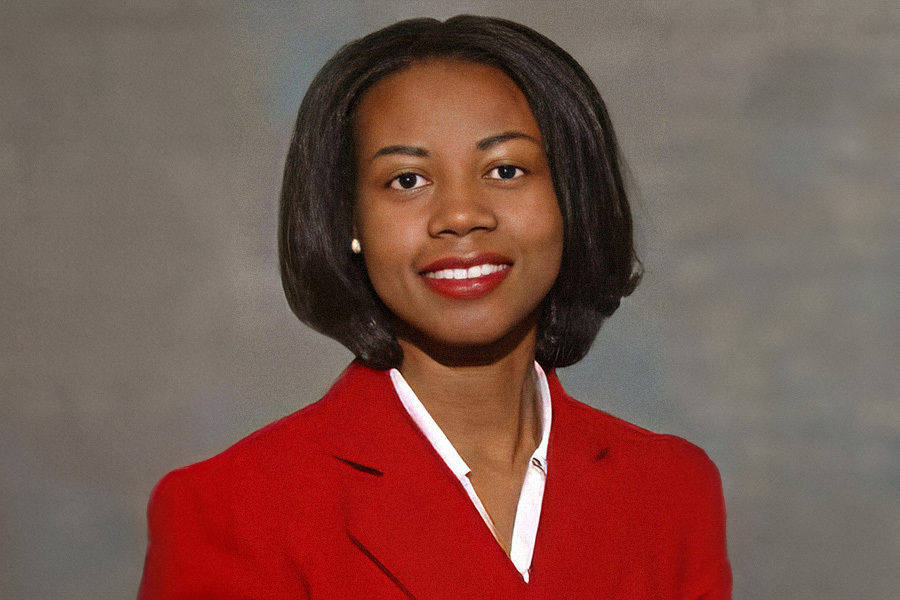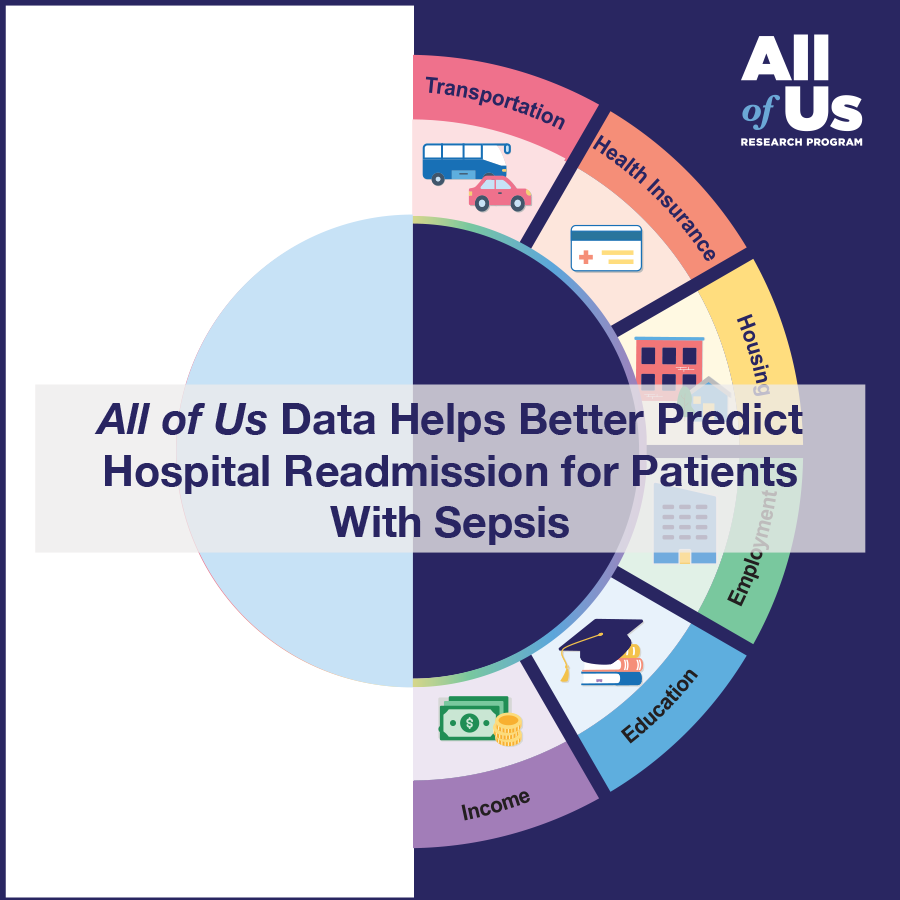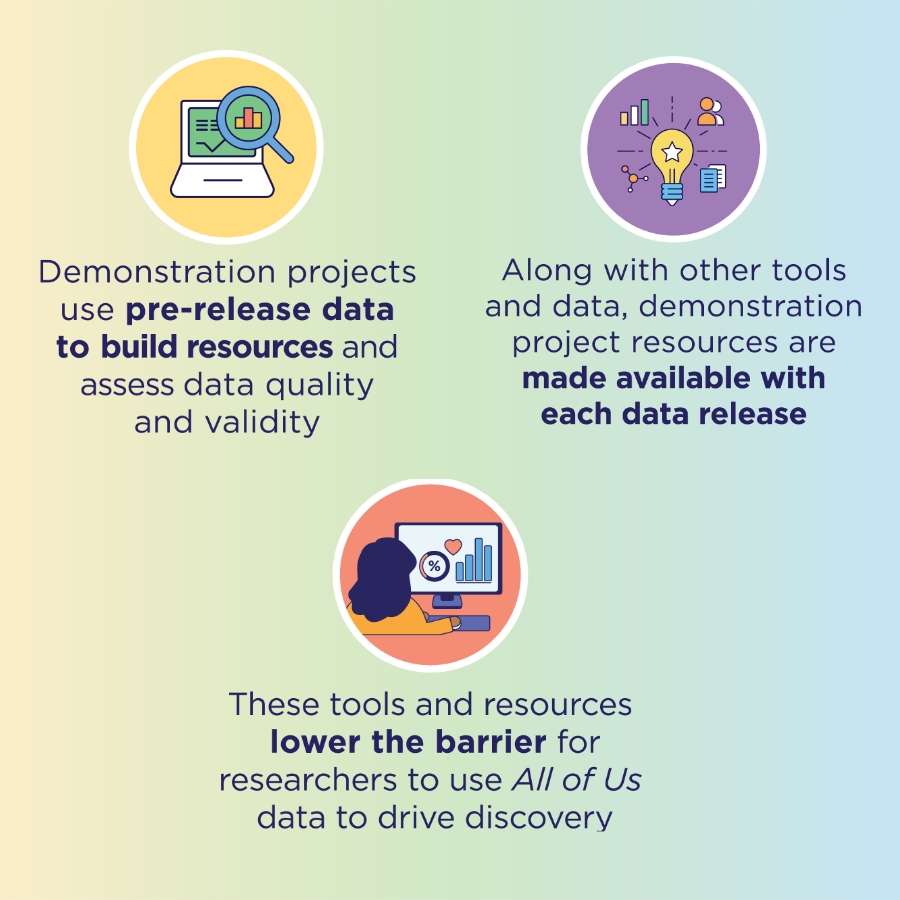
Co-Chair of the All of Us Research Program’s Social Determinants of Health Task Force, Clark has led work to ensure participants report on social factors that influence health.
A researcher and hospitalist in internal medicine, Cheryl R. Clark, M.D., ScD, has dedicated her career to the connection between the social environment and disease risks, the so-called “social determinants of health”—including topics such as safety in neighborhoods, and stressors due to a legacy of structural racism in the U.S.
“It’s been fascinating for me to understand how much of our biology is influenced by these social characteristics,” Clark said. Collecting biological and environmental data is key for robust research on disease origins and risk factors, she said. Some information isn’t available through electronic health records or lab tests. “There are things you can’t investigate unless you ask people, so you can learn about their experiences.”
The Social Roots of Health Equity
Clark draws on her personal experiences growing up in the south suburb of Harvey, Illinois. She grew up in a tight-knit neighborhood with lots of social support. From a young age, she knew she wanted to become a doctor due to her curiosity about medicine, but also because her large, extended family battled cancer and other diseases. She saw the patterns as broader societal issues that needed attention.
As an undergraduate at Stanford University, Clark read the works of African American scholars, who informed and directed the trajectory of her career. Sociologists like William Julius Wilson and physicians such as Dr. Deborah Prothrow-Stith helped her understand the social roots of patterns and health inequities, providing an academic framework to examine the relationship between the environment and health outcomes.
Now, Clark is newly an Associate Chief of the Division of General Internal Medicine and Primary Care at Brigham and Women’s Hospital, an affiliate of Harvard Medical School. In this role, she oversees equity research and strategic partnerships to support health equity on behalf of the Division. She is also a practicing physician hospitalist treating patients at Brigham and Women’s Hospital on the frontlines of the pandemic.
Clark co-chaired the All of Us Research Program Social Determinants of Health Task Force, that developed an online survey that launched Nov. 1 asking participants to share information about their environmental conditions. The Task Force members ensured the surveys included questions that reflect the social experiences of All of Us participants, including isolation, discrimination, loneliness and other factors.
“The purpose of collecting this data is to form a more complete picture on the influences for susceptibility to disease and resilience that promotes health,” Clark said. “Gathering data on biology and social influences are important components.”
Nearly 60,000 participants have completed the survey since it launched. Responses will become available to researchers in mid-2022 in the program’s platform for data analysis, called the Researcher Workbench.
Using All of Us Research to Pinpoint Demographic Patterns
Clark already has tapped the diverse data available to researchers through the All of Us Researcher Workbench. In a study with colleagues, Clark demonstrated how the All of Us data can be used to map the prevalence of obesity across the United States. The demographic and geographic diversity from participant data proved a key resource in detailing patterns, Clark said.
The obesity study is scheduled to be published at the end of December in Preventing Chronic Disease, a peer-reviewed public health journal sponsored by the Centers for Disease Control and Prevention.
Her previous research examined the impact of neighborhood disadvantage and safety on cardiometabolic risk in African Americans as part of the Jackson Heart Study. The landmark large, NIH-funded long-term study launched in 1998 to examine genetic and environmental risk factors associated with the disproportionate burden of cardiovascular disease in African Americans.
“This research shows that our social environments affect our biology in profound and important ways,” Clark said. “Our stress and how we think and feel influences our risk of heart disease.”
She is planning future translational research focused on eliminating inequities in risk factors for cancer and heart disease.
Building Partnerships to Combat Health Inequities
Clark is collaborating with her mentor, David W. Bates, MD, MS, Chief of the Division of General Internal Medicine at Brigham and Women’s Hospital, on a project to develop health equity technology strategies for large businesses to use to eliminate inequities in health. Called ‘TechQuity’, Clark, Bates and colleagues collaborated with IBM Watson Health to publish a perspective piece in September in the Journal of the American Medical Informatics Association calling for the need to improve technology practices to eliminate rampant health inequities.
“If we take social determinants of health seriously, we realize that it is a multi-sector issue,” Clark said. “We’re going to need strategic partnerships to address and improve health equity across many fields.”
Through a partnership with IBM Watson Health, Bates and Clark are developing strategies for use by businesses to achieve equity for employees.
A Recognized Leader in Health Equity
Clark credits many mentors and advisors along her academic journey for encouraging and supporting her career. Beginning at Thornton Township High School outside Chicago, social studies teacher Dorothy Bryant took a personal interest in making sure Clark applied for scholarships and awards. Bryant’s involvement with a local alumni fund and national African American sororities, ensured that Clark was a candidate for scholarships to pursue her undergraduate degree at Stanford University.
Dean Arnold Jirasek’s support enabled Clark to study Spanish in Costa Rica and French in Quebec during her summers.
“An important part of our journey is the way people care and instinctively value helping one another,” Clark said. “It certainly was formative for me.”
At Harvard, Bates nominated Clark for an inaugural award recognizing her efforts to advance equity, justice and advocacy. Clark received the award last month.
“Her work to address social inequities and ongoing disparities is pivotal, especially her role with the All of Us Research Program,” Bates said.
Joan Reede, MD, dean for Diversity and Community Partnership at Harvard Medical School, cited Clark's leadership establishing mentorship opportunities for Harvard students. The Leadership for Health Equity program offers residents one-on-one mentoring and community training to address social and structural disparities.
"She has been a steadfast advocate and mentor for internal medicine residents interested in health equity and social justice," Reede said.
Clark also was recognized for her leadership in coordinating social responses to address inequities during the pandemic. She led the COVID Equity Response Team across Brigham and Women’s Hospital, assembling a team to assist vulnerable populations disproportionately impacted by the pandemic. The team addressed food insecurity, lack of COVID-19 testing and assisted with hundreds of vaccinations for residents across Boston.
The Takeaway: Sparking Curiosity
“Caring for others involves being respectful and curious about other cultures and places other than your own,” Clark said.
Her curiosity was sparked and cultivated at a young age by her parents. Her father, an electrician, had wires and tools in a basement workbench where he spent time building, inventing and fixing.
“Problem solving is in my background,” Clark said.
In addition to her research, teaching, mentorship and work with the All of Us program, Clark continues to practice medicine at Brigham and Women’s Hospital. This past year, she treated patients in the COVID unit at the peak of the pandemic in Boston, witnessing profound ways medical professionals chose to help.
“Part of my story is that sometimes just the small things you do, small decisions you make can have an impact,” Clark said. “Making the decision to step inside a COVID unit can make a difference.”
As a mother, Clark hopes to instill in her young children, ages 3 and 7, the same sense of curiosity and caring for community.
“I hope they will always think about how to be generous, how to shape a just society,” Clark said. “I hope they will think about how to be leaders in managing problems and opening opportunities, be they related to physical or social health. We all need to band together.”
Share your story with All of Us
If you would like to recommend someone to be featured, please submit a suggestion to All of Us.
Are you Interested in the All of Us Research Program?
- Learn about participation in the program.
- Learn about opportunities for researchers.


